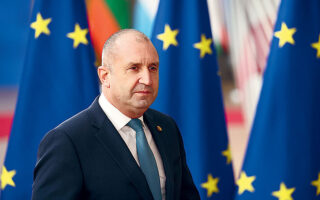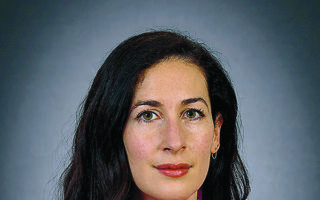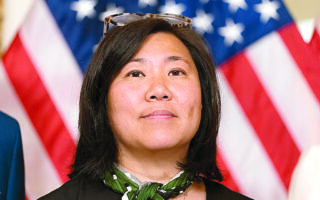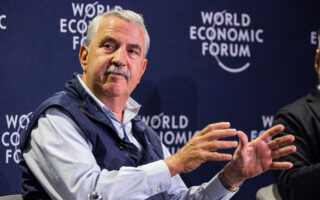‘Greece must be a part of the new nuclear revolution’
Purdue University professor laments decision to deactivate country’s only reactor, dismisses RES as ‘decorative’
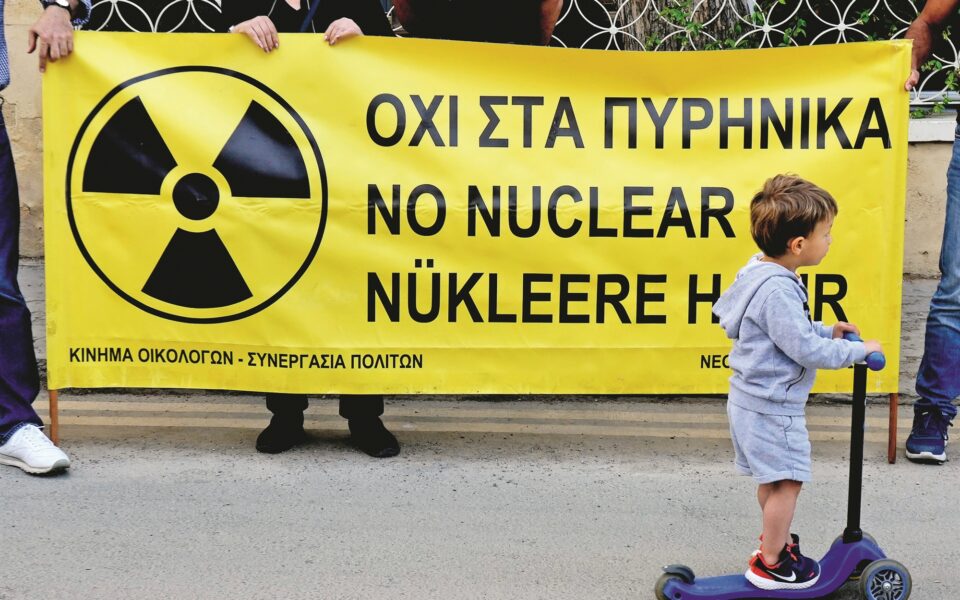
A conversation with Lefteri Tsoukalas is certainly an experience. The distinguished professor in nuclear engineering at Purdue University is regarded as one of the top people in his field. He is also a fellow of the American Nuclear Society and the 2009 recipient of the Humboldt Prize, Germany’s highest honor for international scientists. Few can match his knowledge on nuclear energy. This knowledge, however, comes with a zealous belief in the virtues of this technology and his dismissal of concerns about the risks involved as “myth” and “propaganda.” He also describes the 1986 Chernobyl disaster as a “local” event without far-reaching consequences.
Tsoukalas is a founding member of the Nuclear Energy Agency’s (NEA) Global Forum and he had just attended a meeting before speaking with Kathimerini.
“The first aim of the forum is to prepare the workforce – scientists and researchers – needed to operate nuclear stations in different parts of the world,” he tells Kathimerini. “The second concerns the nuclear supply chain – instruments, reactors, fuel etc.”
The Purdue University professor, who hails from Gastouni in the northwestern Peloponnese, believes that “we’re on the cusp of the next historic energy transition, from hydrocarbons to nuclear, both because of climate change and because we will need fossil fuels for all the other uses and products for which they are essential.” Without nuclear energy, he says, “the target of net-zero emissions by 2050 is completely unattainable.”
Tsoukalas admits that we need all the different forms of energy, but brushes off renewables like wind and solar as “decorative.” He argues that frequent problems with their supply (when there’s not enough wind or sun) means that they become a burden on the electricity grid. In fact, RES, he says, cause “premature aging” of the network and can “accelerate its collapse.” “They’re a little bit like anabolic steroids, so it is essential to have a parallel system that provides an uninterrupted electricity supply.”
Regarding evolution in renewables technology that will allow the power produced by wind turbines and photovoltaics to be stored and available when needed, Tsoukalas is not optimistic. He also argues that if this is achieved on a big scale, Europe will simply be swapping its dependence on Russia for natural gas for dependence on China for utility-scale storage systems.
“Ms Merkel saw to it that Europeans turned to wind power, a choice which rendered Russian gas essential,” says Tsoukalas, referring to the former German chancellor. “In the meantime, she decided to shut down Germany’s nuclear power plants, which had been working very well, so that now the country burns more lignite than it did 10 years ago,” he adds.
Tsoukalas also dismisses concerns that if Europe were to turn to nuclear energy, it would become dependent on countries that mine uranium – an issue that was recently thrust into the limelight with the coup in Niger – as Finland is the continent’s only producer.
“The cost of fuel in nuclear power generation is very low, almost negligible – less than 5% of the total cost,” he explains. “When producing electricity from gas or lignite, it varies between 30% and 50%. The reason is that nuclear fuel has a huge advantage in energy efficiency. One kilogram of uranium-235 produces 200 million times more energy than 1 kilogram of lignite, oil or natural gas.”
‘The multiplier of nuclear technology on the economy is huge, 35 times bigger than tourism’
The Greek reactor
Greece, in the meantime – which can be described, at best, as skeptical toward nuclear technology – recently made a move that puts an end to any aspirations it may have had on this front. After years of deliberations, last May the Demokritos National Center for Scientific Research – the largest in Greece – sent the last batch of non-irradiated fuel in its possession to Canada by air. By transferring these 13 particles of uranium-235 – of American origin – to McMaster University in Ontario, Demokritos drew the curtain on its nuclear reactor, which was inaugurated in 1961 and deactivated completely in 2004.
Tsoukalas disagrees vehemently with the decision, saying that “there was no reason to get rid of the fresh fuel,” and describing the deactivation of the reactor as “catastrophic” to Greece’s national interests.
“The rest of the world is moving ahead and we should be doing the same,” says the academic and expert. “Even though it was devastated by the Nazi occupation and the civil war, Greece in 1950 tried to enter the atomic age. Today it produces nearly 50% of its electric energy from natural gas, which is expensive, dirty and imported. And the only Greeks who know anything about nuclear technology are abroad.”
But is developing nuclear energy, I ask, recommended for a country like Greece, given its seismic activity, the failure to deal with matters as simple as domestic waste management, with infrastructure shortcomings that come to light with every case of extreme weather and terrible holes in its regulatory mechanisms?
“It’s a sensible question, but I have also lived in countries in Asia, like South Korea, which was poorer than Ghana in 1960. It nevertheless adopted a strategy for developing its nuclear industry and today it is one of the world’s biggest economies, with a GDP of $1 trillion,” says Tsoukalas.
“Greece must be part of the new nuclear revolution, not just as a consumer, but it must also learn to produce new reactors,” he stresses, adding that the Koreans build their reactors at their shipyards. “We have shipyards too – and we have America’s unbounded strategic backing. Everyone is starting from scratch in this new atomic age and Greece could accomplish great things.”
So what would Greece look like in 20 years if such a plan was successfully implemented?
“We need to build a new energy industry that will produce three times more electrical energy at one-third of the cost, that will give us energy and technological security and that will be resilient to the climate crisis and other pressure. The multiplier of nuclear technology on the economy is huge, 35 times bigger than tourism. With relatively small but strategically targeted investments, we could be one of the countries that produce this technology – cables, software, metals, nuclear-grade solder etc,” he explains. Small modular reactors, in particular, he adds, “are easier to install and, being digital, are much more flexible in terms of management and safety.”

In Eastern Thrace
Earlier this month, the Turkish government announced that it was close to a deal with a Chinese company to build a nuclear power plant in Eastern Thrace, near its border with Greece. If the plan goes ahead, this would be its third nuclear station. The first, in Akkuyu, in the province of Mersin, some 60 km from Cyprus’ coast, is already under construction, while the second, in Sinop in the north, is in the design stage.
“With the four reactors at Akkuyu, Turkey will produce as much energy as Greece consumes today. It is said that [presidents of Turkey and Russia] Erdogan and Putin agreed at Sochi on a second plant at Sinop, apart from the one that is already being planned,” Tsoukalas stresses.
“Either way, having the knowledge and infrastructure is an element of power. We need people who understand the developments in this area. The Turkish equivalent of the Demokritos center has 2,000 nuclear engineers. I have two Turkish students at Purdue who are there on a scholarship from the Turkish state,” Tsoukalas adds.
